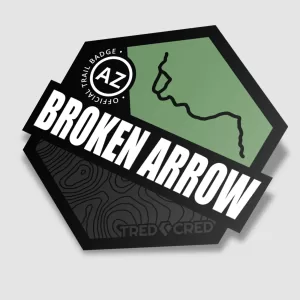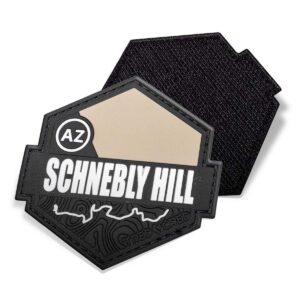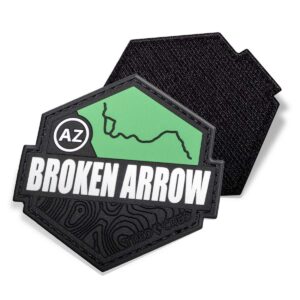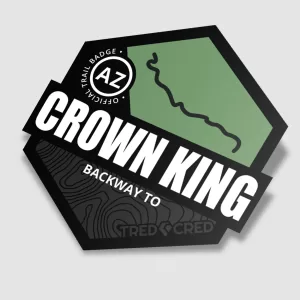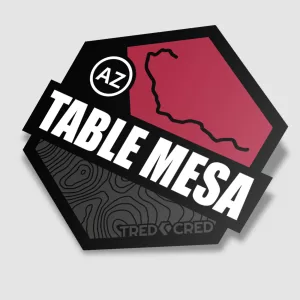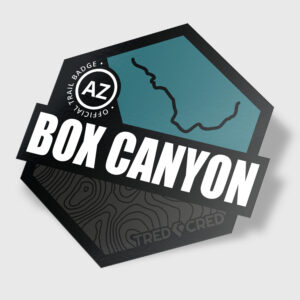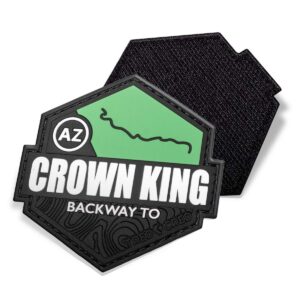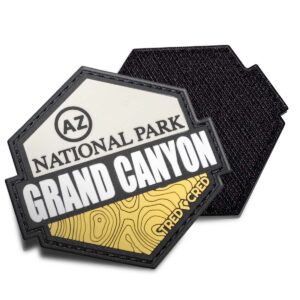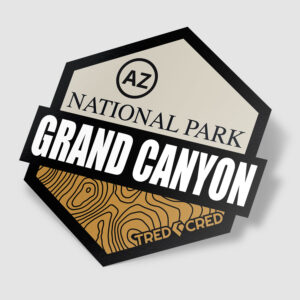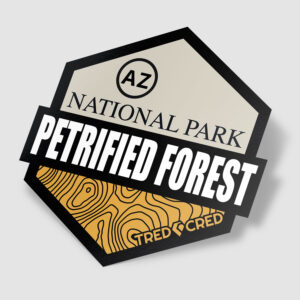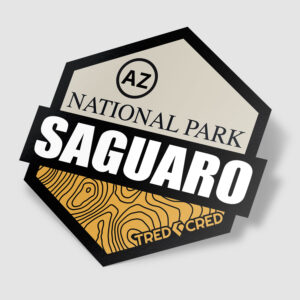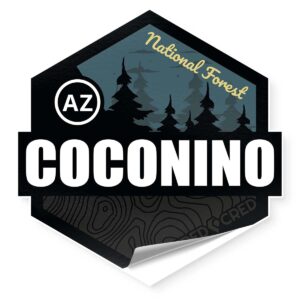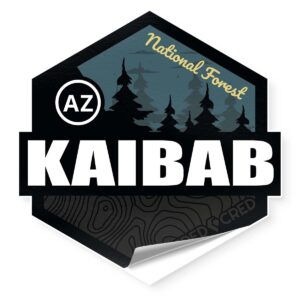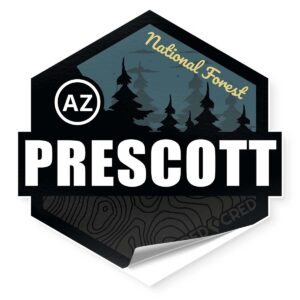Embarking on an Overland Adventure at Lake Powell
The sun dips below the horizon, casting a fiery glow over the red rock cliffs that embrace the pristine waters of Lake Powell. As your tires crunch over the dusty trails, a sense of adventure stirs in your chest, the kind that every overlander and off-road enthusiast craves—the promise of the unknown, the allure of conquering rugged terrain, and the ultimate reward of breathtaking solitude. This is Lake Powell, a vast playground of sandstone mazes, hidden canyons, and endless four-wheel-drive trails that demand both skill and respect.
Overlanding in this region isn’t just about the terrain; it’s about the memories you create, the challenges you overcome, and the places you leave your mark. And for many, that mark comes in the form of a simple yet powerful token—a souvenir sticker or patch commemorating the journey. Let’s dive into what makes Lake Powell an overlanding paradise, how to navigate its trails, and why your journey deserves to be remembered with a badge of honor.
Why Lake Powell is a Must-Visit Overlanding Destination
Lake Powell is more than just a massive reservoir straddling the Arizona-Utah border; it’s an overlander’s dreamscape filled with technical off-road routes, mesmerizing slot canyons, and secluded camping spots accessible only to those willing to push past the beaten path.
Unparalleled Scenery
Picture an alien landscape, where red rocks rise like ancient monuments, their surfaces tattooed by time and weather. Lake Powell itself is a striking contrast—a ribbon of deep blue winding through an otherwise arid expanse. Sunrises and sunsets here don’t just paint the sky; they ignite it, turning rock walls into glowing embers and making the lake shimmer like liquid gold.
Challenging Off-Road Trails
There’s no shortage of routes for seasoned overlanders and casual explorers alike. Smoky Mountain Road, a 78-mile stretch from Big Water, Utah, to Escalante, offers breathtaking high-desert views and rocky climbs that test a vehicle’s mettle. Alstrom Point, known for its panoramic overlook of the lake, requires careful navigation, rewarding the persistent with one of the most stunning vistas in the American Southwest.
Remote Wilderness Camping
Forget the crowded campgrounds—Lake Powell boasts near-limitless dispersed camping opportunities. With enough preparation and responsible Leave No Trace principles, you can set up camp beneath the sweeping desert sky, with nothing but the sound of the wind and distant coyote calls to keep you company.
Preparing for the Lake Powell Overland Experience
Overlanding here isn’t just a casual day trip; it demands preparation, skill, and respect for the environment. Here’s what you need to consider before embarking on your journey.
Vehicle and Gear Considerations
Lake Powell’s terrain can shift from deep sand to slickrock, and from washboard roads to unpredictable river crossings. A high-clearance 4×4 vehicle is essential, as is a solid set of all-terrain or mud-terrain tires. Recovery gear like traction boards, a tow strap, and even a winch can mean the difference between a minor setback and a full-blown rescue situation.
Water, Fuel, and Supplies
The arid environment can be deceiving—days are scorching, nights can be frigid, and water sources are few and far between. Carry at least a gallon of water per person per day, along with extra fuel if venturing deep into remote areas. Food should be high-calorie and non-perishable, ensuring you stay fueled for long days on the trail.
Navigation and Permits
Cell service is scarce, and trails can be poorly marked. A good GPS system, paper maps, and a reliable offline navigation app, such as Gaia GPS or OnX Offroad, are essential tools. Certain areas require permits, particularly if you venture into Grand Staircase-Escalante or Glen Canyon National Recreation Area, so plan accordingly.
Commemorating Your Journey with a Lake Powell Souvenir Sticker or Patch
If overlanding were just about the drive, it would still be exhilarating—but the best part is the stories you collect along the way. A custom sticker or patch is more than just a piece of fabric or vinyl; it’s a tangible memory of the places you’ve conquered, tales of perseverance, and moments of awe.
A Badge of Honor
In overlanding culture, stickers and patches hold deeper meaning. They’re not just souvenirs; they are badges of honor, like medals earned on the battlefield of nature. A sticker on your rig or a patch on your gear tells a silent story to fellow travelers—“I was there. I faced the terrain. I conquered it.”
Designing the Right Keepsake
When selecting or designing a Lake Powell sticker or patch, think about the elements that defined your journey. The silhouette of Alstrom Point at sunrise? The dusty trail winding through Glen Canyon? The deep, unrelenting blues of the water? Your keepsake should reflect what made your overlanding trip unique, something that sparks memory and conversation every time you see it.
The Community Bond
Displaying your stickers and patches isn’t just a personal victory; it’s an unspoken connection to the overlanding community. Whether you meet another traveler at a gas station or a rest stop, swapping stories and stickers is part of the culture—evidence of shared struggles and triumphs, kindred spirits linked through grit and dust.
Final Thoughts: Your Legacy on the Trail
At its core, overlanding at Lake Powell is about adventure, skill, and the freedom to explore. It’s about witnessing nature’s raw beauty up close and facing challenges that forge unforgettable experiences. And when the dust settles, the campsite is packed, and the tires have rolled on, you’ll take with you more than just memories—you’ll carry a piece of the journey with you, a symbol of where you’ve been and what you’ve conquered.
So, as you navigate the vast landscapes of Lake Powell, remember to leave nothing but tire tracks and take nothing but experiences. And when it’s all said and done, slap that sticker on your rig or sew that patch onto your backpack. Because every great journey deserves a badge of honor.



